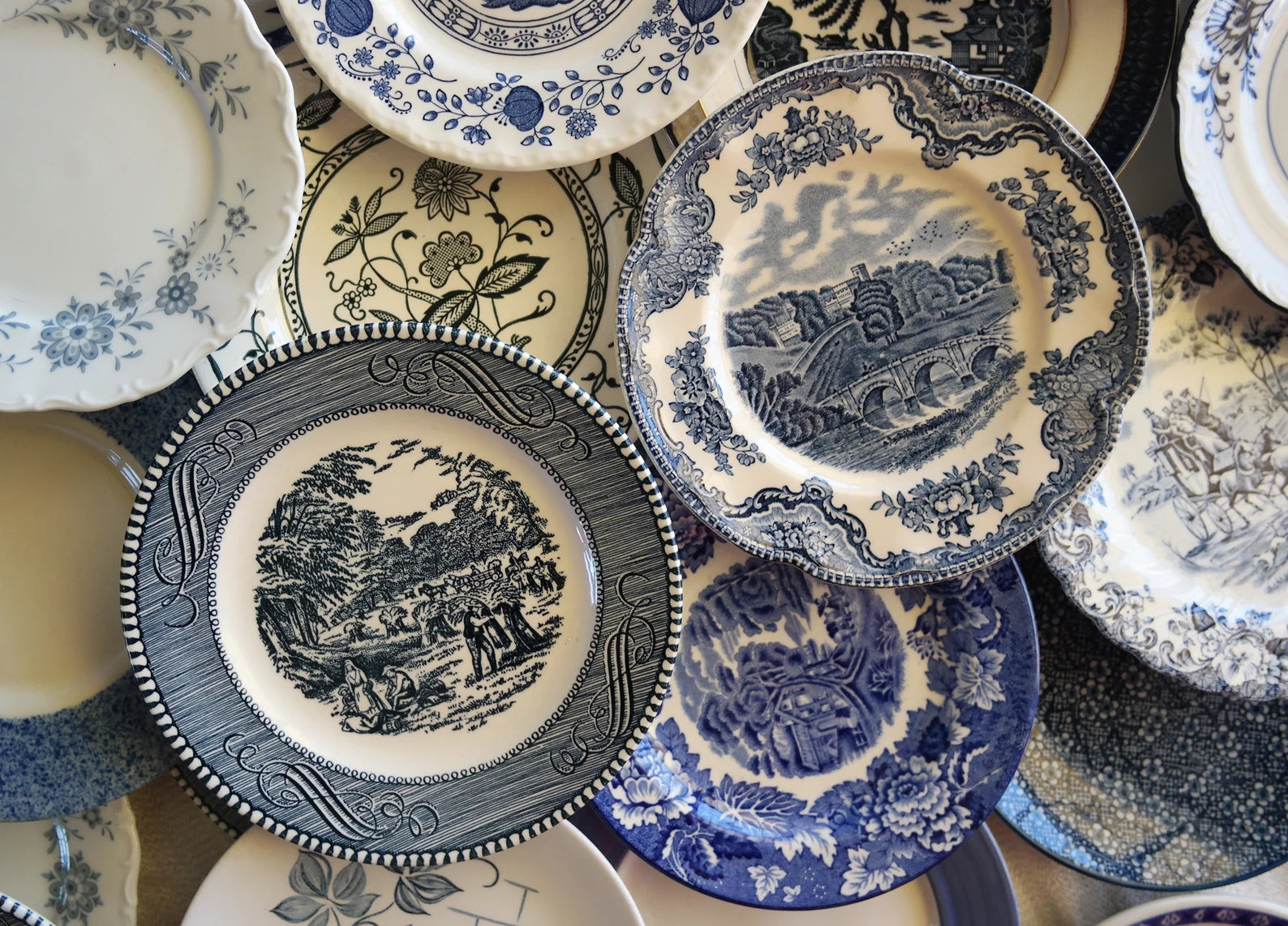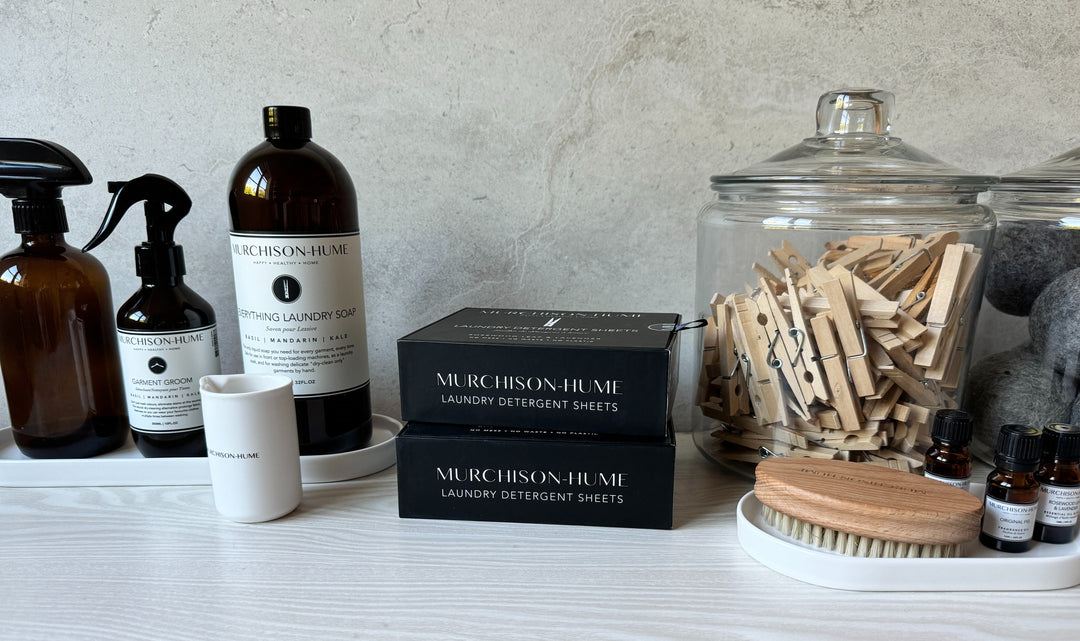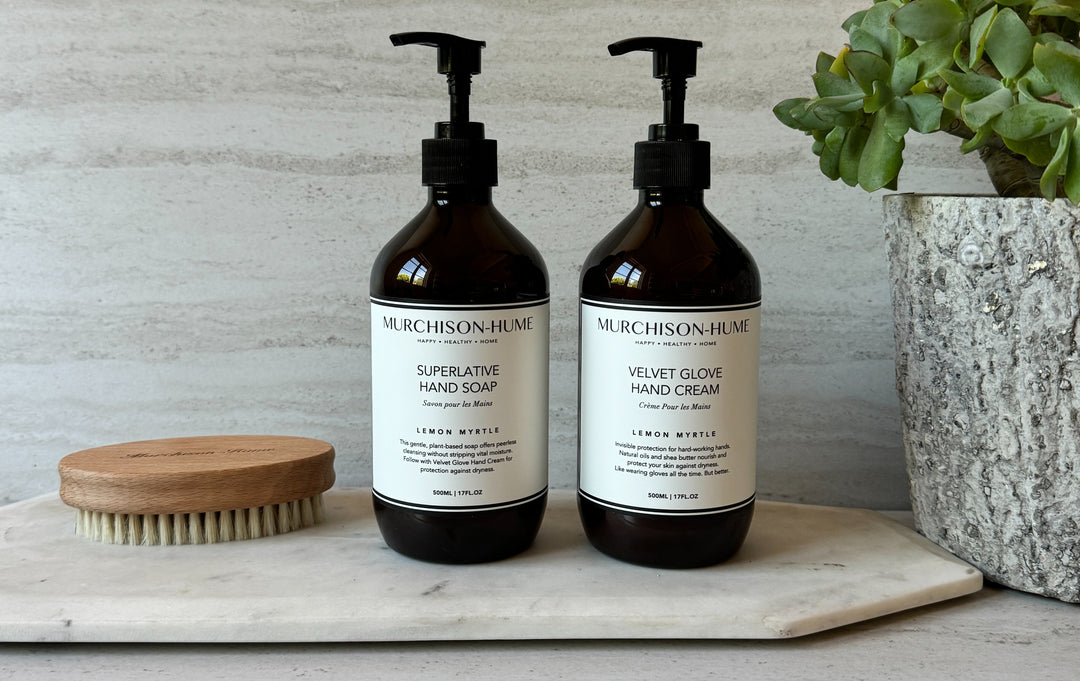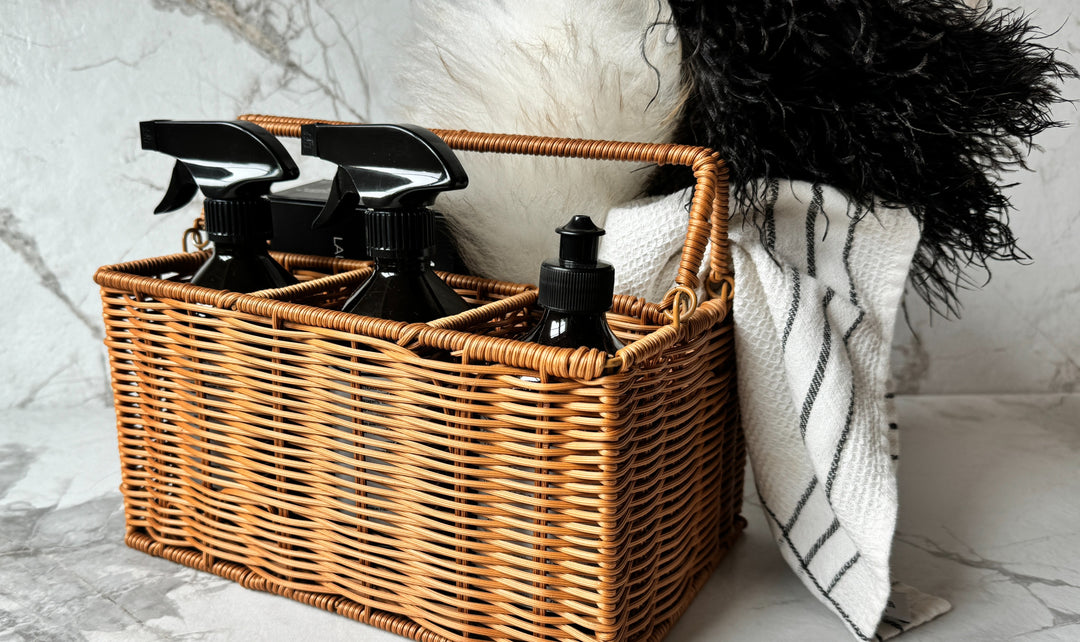I started Murchison-Hume because I wanted to inject a little glamor into the everyday. It started with better cleaning products but is now baked in as an important part of our entire business.
That’s why I’m a BIG advocate for actually enjoying my “nice” things on the daily. I make a point of using real cloth napkins; eating on real china plates, lighting candles, and making our beds with the best linens we can afford. Life’s too short not to use the good stuff. What are you saving it for?!
Some things are actually degraded by long stints without use. Linens can deteriorate, perfume and candles lose their potency over time, and storing fine china, in particular, can lead to brittleness and cracks if stored incorrectly. Use it or lose it, Sista!
But I get it. Some pieces are really special and you don’t want to use them for Tuesday night leftovers. I store my good stuff, too (although I make it a point to use it periodically).
It’s perfectly OK to store some of your fancier stuff, as long as you remember these tips for washing and storing your precious china pieces:
Don't Use Your Dishwasher
Step away from the dishwasher. The extreme heat and harsh detergents aren’t great for delicate items like vintage china and stemware, even if they're labeled "dishwasher safe." Better to play it safe with the good stuff and hand wash them instead. Honestly, if you are rinsing dishes before sticking them in the dishwasher anyway, you might as well just wash them, too. Yes, it takes just a few minutes more, but then you don't have to unpack the dishwasher when they're done.
Line The Sink With A Towel
If I’m doing a lot of dishes by hand, I like to put a clean cloth or tea towel on the bottom of the sink before filling it with water to minimize the risk of cracking.
Only Use Warm Water
Use warm water, never super hot or cold, as sudden temperature changes can cause delicate china or crystal to crack.
Work From Clean to Dirty
Start with the cleanest dishes first. I wash the glasses and work my way through to the greasiest pots last, refilling warm water and adding dish soap as needed.
Soak While You Work to Save Time
You're soaking in it: I like to fill the same cooking pot I used with sudsy water and chuck the cutlery/silverware in there while I do the dishes. Any sticky food will start to dissolve while you let them sit.
Avoid Scratches on Your China
Don't scratch. I can't stress how much easier any domestic job is when you have the right tool for the job. Use a bottle brush for glasses instead of jamming your whole hand in there (I've broken a few wine glasses that way). Try to resist the urge to scrub your delicate plates with an abrasive sponge. A natural bristle brush will reduce any potential damage to the glaze.
Choose The Right Dish Cloth
Dry dishes carefully with a clean, lint-free dishcloth. I use dishwashing gloves to protect my hands (and minimize dropping slippery dishes). Place dishes in a rack for drying (or better yet, get a buddy to help you dry as you go). If I'm drying lots of dishes I spread a clean Turkish towel on the table and leave them there until I can dry them.
Don't Let Water Sit On Your China
Once you're ready to put away your china again, make sure everything is BONE DRY before you put it away, and then use paper plates in between each dish to avoid marking or scratching. I like to use paper plates between my China to prevent scratching.
Don't Let it Gather Dust
If you use your fine china very rarely (and again, why???) at least make sure to take it out and eyeball it every couple of months or so to prevent brittleness and preserve the pattern and glaze. This is a great excuse for a fancy dinner party (or even takeaway Chinese on the good china!)
Family dinners on real china can turn an ordinary weeknight dinner into an impromptu dinner party! Get a nice bottle, invite a friend over, use the linen napkins and marvel at how much better your default lasagna is when served on the good stuff.
Bon Appetit!
xmk







